News
Floor gratings are often seen as a superior alternative to flat surfaces for flooring, walkways, raised platforms and various other industrial applications.
Gratings are lightweight, affordable and low maintenance. It is aesthetically appealing, offering good ventilation and slip resistance. It can be stored and installed relatively easily. And often the material can be reused or recycled, which makes grating more environmentally friendly.
In addition to walkways and raised platforms, floor gratings are used on bridges, commercial-grade catwalks, drain and gully covers, jetties, steps etc.
But there are a number of different options when it comes to choosing your industrial floor gratings.
Steel Floor Gratings
Steel is the most popular material for floor grating. It is manufactured using a combination of vertical bearing bars and horizontal cross rods.
Steel as a material offers excellent durability and resistance to corrosion. It also has great yield and tensile strength.
The most popular two feature a 30mm bearing bar pitch with either a 100mm or 50mm cross rod pitch.
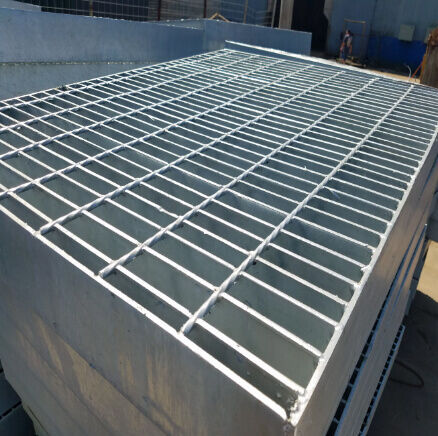
Normal steel grating
Normal steel gratings are sturdy grids of bearing bars and crossbars. To enhance the anti-slip effect for e.g. offshore industry, these gratings can be produced with serrated bearing bars.
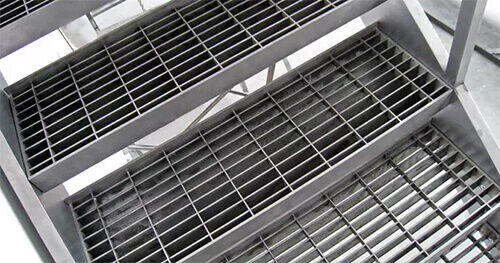
Stair tread
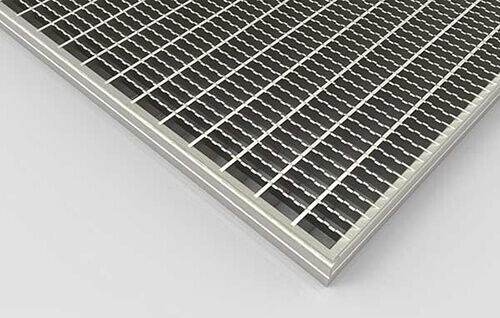
Pressed gratings
Pressed gratings are sturdy grids of bearing bars and cross bars made from steel strip. The crossbars are automatically pressed into the bearing bars and enclosed by an edge, guaranteeing a rigid panel.
Although there are Aluminium Floor Gratings,FRP floor gratings in the market, steel grating is the largely used one in industrial ways.
Aluminium floor gratings are often chosen as a lightweight option. As a material, aluminium is not as strong as steel but it is lighter.
As a result, aluminium floor gratings are also popular in industrial environments where weight is a primary consideration.
Fibreglass reinforced plastic or FRP floor gratings are replacing traditional floor gratings materials in a number of different industrial applications.
The glass fibres provide the final product with its strength and durability, while the polymer resins are resistant to corrosive substances.
But FRP’s lifetime can’t catch steel and aluminium ones.
Specific grating can be manufactured for every application, and many types of clamps are available for securing the gratings.
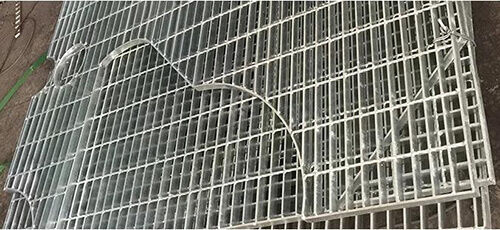
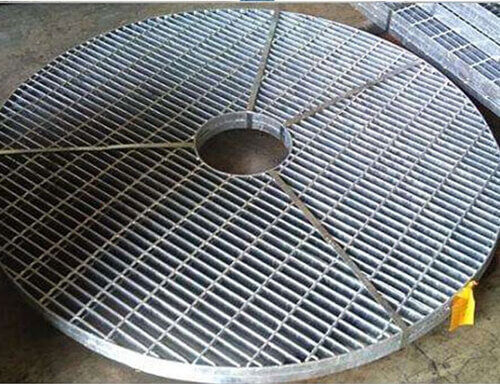
Request a Free Estimate
